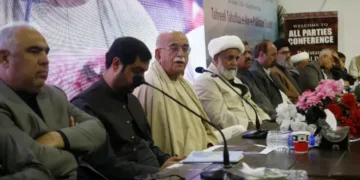In a promising step for Pakistan’s digital future, the world’s largest submarine cable has officially arrived in the country, according to Minister of State for IT Shaza Fatima. This groundbreaking development comes amid widespread frustrations over persistent internet issues, sparking hope for improved connectivity nationwide.
During a Senate session chaired by Deputy Chairman Syedal Khan, Senator Mohammad Aslam Abro voiced concerns over the country’s ongoing internet disruptions. Highlighting Pakistan’s struggle to resolve these technical issues despite global advancements, he proposed referring the matter to a committee for deeper investigation.
Shaza Fatima addressed these concerns, emphasizing that the Pakistan Telecommunication Authority (PTA) has been working to enhance internet speeds and expand capacity. She revealed that over the past two years, frequency capacity has doubled, and IT exports have seen a remarkable 33% growth in just the last five months, making it the only sector with a trade surplus. Additionally, internet users in Pakistan have increased by 25%.
The minister explained that most connectivity issues stem from mobile broadband. She assured the Senate that the government is actively engaging with relevant businesses to address the challenges. She also highlighted that Pakistan now has eight submarine cables, one of which had reached the end of its lifespan, making the arrival of the Africa-2 Cable particularly crucial.
The Africa-2 Cable Project is a state-of-the-art undersea network spanning 45,000 kilometers and connecting 33 countries via 46 global landing stations. Its deployment is expected to revolutionize Pakistan’s internet infrastructure and significantly enhance data transmission capabilities.
While optimism runs high, questions remain about the broader IT landscape. Senator Zeeshan Khanzada noted that political instability has hindered progress, despite increasing IT exports. Shaza Fatima responded that while efforts are ongoing, more needs to be done, including better allocation of resources and strategies to attract investment.
In the backdrop of these developments, tech billionaire Elon Musk confirmed that Starlink, his satellite internet venture, has applied for approval to operate in Pakistan. This has further fueled public anticipation for improved digital services. Local netizens have already expressed excitement, urging Musk to fast-track Starlink’s launch, citing the transformative potential for education and connectivity.
With the arrival of the Africa-2 Cable and the potential entry of Starlink, Pakistan’s digital landscape may finally be on the brink of a much-needed transformation. However, for millions of users, the hope is clear: fast, reliable internet, sooner rather than later.











